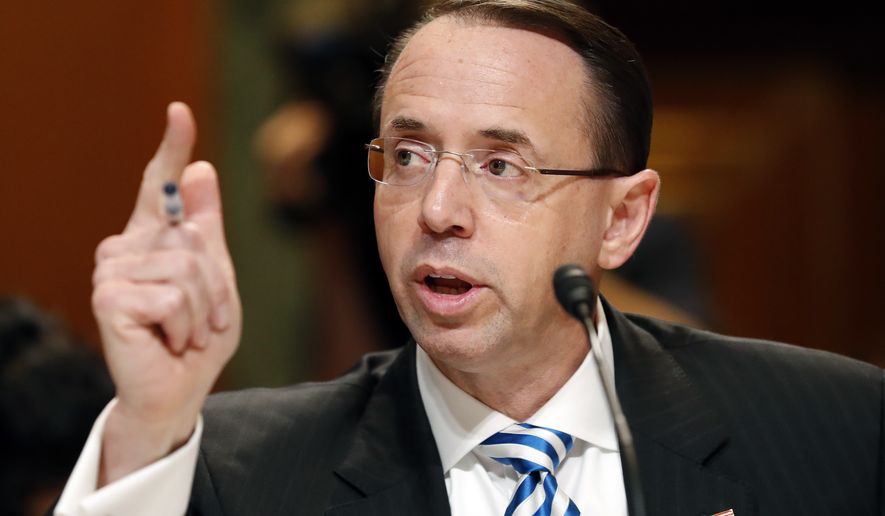Rod Rosenstein, President Trump’s deputy attorney general, on Thursday referenced the recent mass shooting at a Texas church as an example of why American cellphone manufacturers should stop selling mobile devices incapable of being accessed by authorities.
A frequent critic of what he calls “warrant-proof encryption,” Mr. Rosenstein cited the Sutherland Springs First Baptist Church massacre as the FBI wrestles with recovering data from a cellphone belonging to Devin Kelley, the 26-year-old Air Force veteran who conducted the killing spree Sunday and then committed suicide, according to police.
“The FBI has the suspect’s phone, but cannot access the data inside because of encryption,” Mr. Rosenstein said Thursday during a private event, as relayed by the Justice Department.
“When you shoot dozens of innocent American citizens, we want law enforcement to investigate your communications and stored data. We expect police and prosecutors to investigate such horrendous crimes. There are things that we need to know,” Mr. Rosenstein said.
Kelley’s phone could potentially help officials attempting to find a motive for the massacre, but the device is encrypted and can’t be accessed by investigators, the head of FBI’s San Francisco first stated during a press conference Tuesday.
The FBI hasn’t publicly revealed the make and model of the device, but multiple news reports have identified it as an Apple iPhone, echoing a dilemma that unfolded after the December 2015 terrorist attack in San Bernardino, California.
The FBI similarly recovered an iPhone from one of the deceased San Bernardino terrorists, Syed Farook, but it was protected by security features offered by Apple and purportedly impenetrable. The Justice Department sued Apple in hopes of forcing the company to access its contents, but relented after reportedly paying a private contractor upwards of $1 million.
Nearly two years later, federal investigators have accumulated thousands of phones that were legally seized by criminal investigators but incapable of being accessed.
“Maybe we eventually will find a way to access the data. But it costs a great deal of time and money. In some cases, it surely costs lives. That is a very high price to pay,” Mr. Rosenstein said Thursday. “We need to find a solution.”
The Obama administration previously weighed passing rules regulating digital encryption but ultimately decided otherwise. The Trump administration requested $21.6 million in June specifically meant for alleviating its encryption woes, and Mr. Rosenstein said in August that that legislation limiting encryption “may be necessary.”
Tech companies have previously spoken out against attempts to regulate or restrict encryption and other security measures that make their devices less prone to hackers. Apple said it only learned of the FBI’s issues with Kelley’s phone following Tuesday’s press conference and “immediately” contacted investigators offering assistance.
Mr. Trump hasn’t publicly discussed the topic since taking office, but previously advocated boycotting Apple after investigators couldn’t initially crack the San Bernardino terrorist’s iPhone.
Kelley killed 26 people and injured 20 others Sunday morning before taking his own life, according to police. The massacre is under investigation.
• Andrew Blake can be reached at ablake@washingtontimes.com.




Please read our comment policy before commenting.